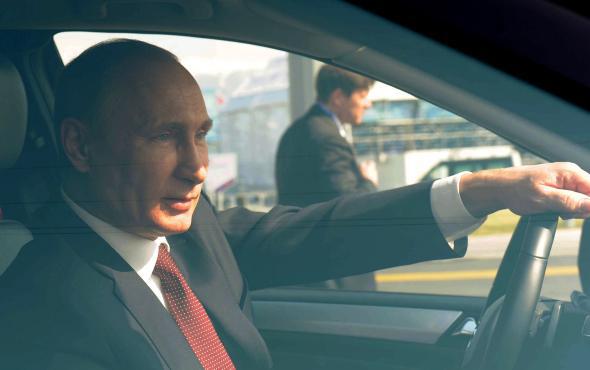It’s not exactly clear yet how Vladimir Putin’s government will react to the overthrow of ally Viktor Yanukovych in Ukraine, but it seems fairly safe to say that the Russian president’s moves over the last few weeks haven’t worked out as planned.
Russian pressure, and the promise of a $15 billion loan, might have been enough to induce the Ukrainian president to back out of a trade and association deal with the European Union, but abandoning the deal, combined with the transparency of the quid pro quo from Moscow, instigated the wave of unrest that culminated in Yanukovych fleeing Kiev over the weekend.
Throughout his presidency, and particularly since last fall when a Russian-brokered deal was reached to secure Syria’s chemical weapons and the United States proved unable to prevent Edward Snowden from being granted asylum in Moscow, Americans of all political persuasions have had a habit of buying the Russian president’s hype, imbuing him with the ability to shape global events through sheer force of will and Machiavellian cunning like some sort of Slavic Francis Underwood.
To U.S. hawks, “Putin speaks power to truth — an unpredictable, unapologetic brute force of nature.” To his rare, but persistent, dovish defenders, he doesn’t get enough credit for “stabilizing a disintegrating nuclear-armed country” and “assisting US security pursuits from Afghanistan and Syria to Iran.” The recently departed Jay Leno, whose political bits were, if nothing else, a fairly good barometer of the uncontroversial consensus, joked that he was losing weight on the “Obama diet”: “Every day I let Vladimir Putin eat my lunch.” Twice as many Americans picked the Russian president over Obama when asked to name the most effective leader during the Syria crisis.
It’s true that Putin has repeatedly shown himself able to play a weak hand effectively: If nothing else, he has repeatedly placed a country with declining military and economic power at the center of global politics. Sometimes his international gamble pay off: Though Russia’s war with Georgia earned international opprobrium six years ago—during another Olympics—the conflict is hardly remembered in the West, and troublesome President Mikheil Saakashvili has been replaced by one more accommodating to Georgia’s giant neighbor.
But the past week has been a useful reminder that even a shrewd leader’s ambitions can be knocked off course by events on the ground. Putin may have the ability, which U.S. and European heads of state didn’t, to order up a $15 billion loan in exchange for loyalty, but the loan couldn’t keep Ukraine’s population from rising up any more than the massive investment in the Olympics could keep foreigners from laughing at the inevitable stray dogs and faulty plumbing in Sochi.
Neither does he seem to be able to deal with his own country’s increasingly robust and focused opposition as effectively as he used to, or, more importantly, take steps to protect his sluggish economy from the growing likelihood of recession.
Putin is a smart leader, a shrewd political survivor, and by his own criteria, has been effective at keeping Russia relevant. But he reacts to events on the ground just like any other leader. And sometimes he gets it wrong.
